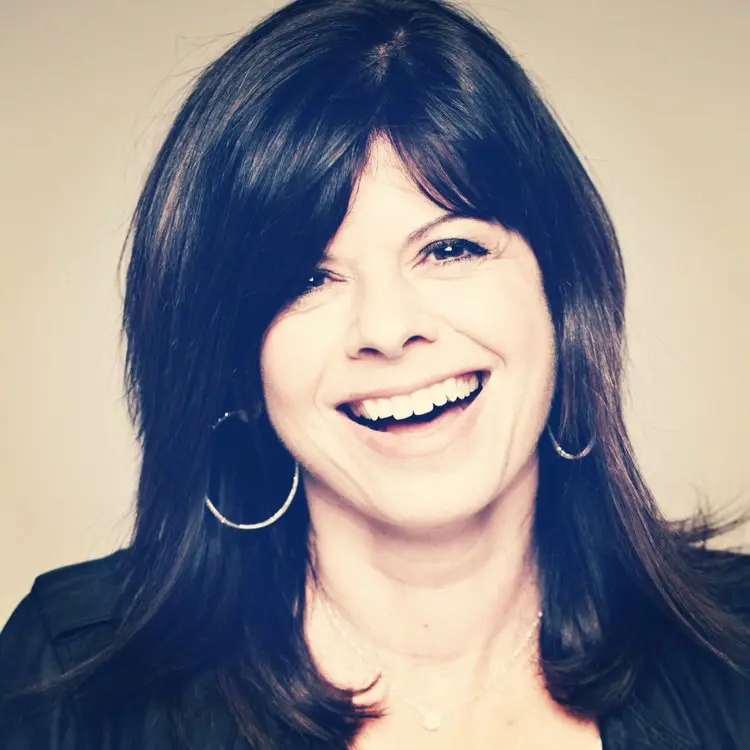“Tech is a young person’s game” is something I hear a lot. I get emails from readers and podcast listeners who are considering learning to code at 40+ or making a career change to programming at 40, 50, 60, or beyond, and are wondering: am I too old to be a programmer?
That’s one question I’ll NEVER answer with a “yes.”
Because if you’re interested in starting a career in IT at 40+, I want you to know that it’s absolutely possible.
And here to prove it are several people who’ve made their own career change to programming. They have tons of useful advice about starting a programming career at 40+.
So whether you’re just beginning learning to code at 30, becoming a software engineer at 40, or looking for the best jobs to retrain for at 50, we’ve got you covered!
Table of Contents
- Why Make a Midlife Career Change Into Tech?
- Common Career Change Fears
- 13 Tips About Getting into Tech After 40
- Courses to Help You Make a Career Change
Disclosure: I’m a proud affiliate for some of the resources mentioned in this article. If you buy a product through my links on this page, I may get a small commission for referring you. Thanks!
Why Make a Midlife Career Change Into Tech?
Switching to a job in tech can be a good idea for a number of reasons! Here are some reasons why learning how to start an IT career at 40 (or older) is a compelling option:
- 📈 Learning to code can advance your career, no matter which job you choose. As you get older, it can feel like your career options become more limited. Seeking a new career at 40+ seems intimidating! But tech skills open doors—not only in the actual tech industry, but in all other industries since they all use technology too.
- 💰 You can increase your salary; for example, software engineers earn $93,817 on average per year in the US. Even entry-level positions often pay more than in other industries! You might earn more as a 50-year-old programmer than you did in previous fields.
- 💻 Coding careers are in demand, which means it may be easier to actually land a job. Employment in computer and information technology occupations is projected to grow 13% from 2020 to 2030, much faster than the average for all occupations.
- 💡 The work is meaningful; you can contribute to innovative projects that serve a real purpose and make a difference in the world.
- 🛋️ Tech jobs are often flexible (work from home, flexible hours, etc.), which can be super important later in life. Making a career change to computer science could be good if you have kids or grandkids to spend time with, or love to travel.
- 🧠 Coding as a career offers challenge and variety. This helps you stay excited and mentally stimulated by your career instead of burning out (which could be part of the reason you’re looking into how to change careers at 40 in the first place!).
- 🔒 You’ll have career security for the future: The need for tech skills isn’t going away anytime soon, making tech jobs some of the best careers to start at 40+.
- 😎 Reinventing yourself at 40+ gives you confidence: Proving to yourself that you can learn new skills is really empowering! Typing some code and making something happen like magic is fun, and provides something new and exciting to escape any inertia you may have felt in your previous job.
Furthermore, starting a career in IT at 40+ might actually give you extra advantages compared to someone younger. For instance…
- You have existing skills: You can draw on your previous industry knowledge and skills to get a foot in the door, since tech know-how is needed in all kinds of fields. For example, if you spent a lot of your career working in the finance industry, getting a tech job in the finance industry (fintech) could give you a leg up over the competition.
- You have a better idea of what you like / want: Since you already have experience in the world of work, you understand what you like and don’t like, your strengths and weaknesses, etc. This makes it easier to choose a career path that suits you.
- You might have contacts: Especially if you’re looking to stay in your current industry, you already know people! That could help you get referrals to land your first job as a developer or software engineer.
Ultimately, coding careers are some of the best jobs to retrain for at 50 or around that age, since they offer flexibility, the chance to save more for retirement, etc.
Start coding now
Stop waiting and start learning! Get my 10 tips on teaching yourself how to code.
☝️ Back to the table of contents
Common Career Change Fears
Anytime you’re contemplating a big life decision like making a midlife career change to programming, it’s natural to have some worries and hesitations. Is it too late to learn programming? Can you really learn how to become a coder at 50+?
Let’s look at some common fears about starting a new career at 40…and a few reasons why you shouldn’t let those fears win!

Fear of starting over at 40+
Finding a new career at 40+ may feel like starting from scratch, going back to square one. But it’s really not!
No matter how you’ve spent the past decade or two, you’ve likely built up soft skills + experience in at least one industry. Add tech skills to those and you have something a bit more unique to offer.
Your background could make you just right for a particular company, e.g.
- Background as a teacher + tech skills = perfect for edTech
- Background as a server + tech skills = perfect for tech support or software dev in the hospitality industry
Even if you’ve taken time off for a reason like raising a family, there are plenty of kid-focused companies with tech roles that would love to have your insight and skills.
➡️ Coding career changer on Twitter:

Ageism in hiring
Worried that you may be discriminated against because of your age, or not get jobs because employers want younger employees?
First of all, older people can bring great value to a company and many employers recognize that.
Susan Ferugio, who learned JavaScript with MotherCoders at 50, says it well: “Why wouldn’t a company want to hire someone over 50?! Our priorities are in order. As moms, we’ve been in difficult situations and have dealt with them, and we really want to do the work.”
Plus, the Age Discrimination in Employment Act (ADEA) forbids age discrimination against people who are age 40 or older.
Overwhelm / not knowing where to start
It can feel really daunting to make a career change to programming no matter how old you are. Tech is a whole new world with its own jargon, culture, etc.
But that’s why I’m here! The tips in this article will help you, but also make sure to explore the rest of the site for helpful guides on transitioning into tech.
➡️ Coding career changers on Twitter:


Lack of time
Life is hard enough managing your current job + family + household. How will you fit learning in too?
There are plenty of strategies you can use to make tech training more flexible with your schedule:
- Learn a little bit every day (half an hour, etc.)
- Choose online courses that can be done whenever / wherever
- Identify when you’re most productive (time of day, day of week, etc.)
Learn more about time management in this podcast episode, where a self-taught developer shares her time management strategies and system for productivity.
In this podcast episode, learn how a glassblower learned to code while working a physically demanding full-time job.
➡️ Coding career changers on Twitter:

Cost of retraining
Traditionally, retraining for a brand-new career was expensive. Good jobs for 40-year-olds with no qualifications (like a relevant college degree) weren’t always easy to find.
But when it comes to making a career change to coding, there are lots of affordable options that don’t require you to go back to college!
- Free / cheap online courses—here are over a hundred places to learn to code for free
- Bootcamps where you only pay back your fees once you’ve landed a paying job
- Scholarships for underrepresented people in tech
You can also start freelancing to make money while you learn, like Joe Previte did. Once you learn enough skills to do simple tech tasks, you might be able to have your training pay for itself!
Here are 13 top tips about getting into tech after 40!
- Don’t buy the lie that you’re too old to code
- Know that tech welcomes all backgrounds
- But don’t underestimate the challenge ahead of you
- Work out how your previous career/skills relate and use them to your advantage
- Start with free/cheap online courses before committing to a more expensive course
- Try different sites, languages, and projects
- Set a deadline for your midlife career change
- Build things on your own
- Surround yourself with a network
- Build an online presence
- Let your interesting personality shine
- Look for companies that actively promote diversity
- Never stop learning
Below, we’ll explore more about these tips on how to change careers at 40+!
1. Don’t buy the lie that you’re too old to code
The first step to making a career change at 40+ is to believe it’s possible and that you can do it. Seek out stories of people like you who have made the transition (there are tons of examples in this post alone!).
For example, Luc Constantin became a web developer at age 42. He struggled with drug addiction, is a father of 4, and still reached his goal.

Syk Houdeib has experienced several industries over his career, from studying music to working in the restaurant business to teaching English as a second language. He didn’t write his first HTML snippet until he was 39. Now, he works as a front-end developer at a startup in Madrid. “I wanted a new challenge,” he said. “Something that would push me well out of my comfort zone.”
As Syk points out, “Time will pass, whether you start now or not. Never think that it’s too late. Once you start the only thing that will stop you is if you stop. If you keep going, you will make it.”
➡️ Coding career changers on Twitter:


☝️ Back to the table of contents
2. Know that tech welcomes all backgrounds
You can absolutely get a great job in tech without a background in tech. When Syk first started thinking about becoming a developer, he would read articles about others who had changed careers into tech, and feel skeptical that he could do the same.
“I kept on looking for something in the writer’s background that made them ‘special,’” he says. “Something that made them suited for this job. Something that I didn’t have.”

But, he continues, “I have since come to understand that this is not how it works. There aren’t any ‘special’ requirements to becoming a developer. I’m not going to tell you it’s easy, but all the requirements are things that are in everyone’s reach. You have to be willing to work hard, learn a lot, and be consistent. You need to persist when things get tough. Everyone can do these things with a bit of practice.”
Coming from a background of music, restaurant work, and teaching, Syk knows better than most that career retraining in tech is accessible to anyone. “I started with no related background study, no money to spend on expensive courses, and wasn’t even particularly skilled with computers,” he says. ‘Everyone’s circumstances are different, but I learned that if you put your mind to it, you can do it.”
“I had a real hang up about my age,” says Matt Edwards, who became a software developer in his 50s. “Who would look seriously at employing a 54-year-old junior? Discussion with Kirsty Devlin (Manchester Codes CEO) and other MC students persuaded me that the tech world is very inclusive: if I can do the work and muck in with others, then nobody on the course, or in the wider tech world, would care how old I am.”
He goes on to say: “I can honestly say that my age has never once been an issue. I was treated no differently from anybody else. I still find it amazing that I have been able to find a legit software developer job a little more than 12 months after I made the decision that I needed a change of career.”
➡️ Coding career changers on Twitter:


There are also tons of programs, initiatives and scholarships that help people from disadvantaged backgrounds/minorities get into tech. Check out these 43 tech career resources for people of color and these 25 organizations in the US and overseas that teach coding for women and girls.
☝️ Back to the table of contents
3. But don’t underestimate the challenge ahead of you

Kevin Smith’s journey in tech has come full circle thanks to his midlife career change. After high school, he got a job as a technician building computer chips, and loaded up on programming classes as he studied electrical engineering in college. However, during his junior year, he quit school and his tech job to pursue his passion for music. He became a jazz guitarist, a cruise ship musician, and a music teacher after earning a master’s degree in music.
But programming stayed in the back of Kevin’s mind, and at age 47, he jumped back in and started learning web development for real to train for a new career. “I found freeCodeCamp and started there. I worked my butt off. I struggled through a lot of things, but some things started to click. YouTube videos helped me get through difficult spots.”

The real challenge of his burgeoning coding career began once Kevin actually began job-hunting. Starting a new career at 50-ish does require patience! “I probably sent out 500 applications, did 30 coding challenges, 20 phone interviews, and about 10 times I got to the second interview. I made it to the final stage three times.”
After all that, Kevin accepted a full-time job as a React Native developer, but he emphasizes that it wasn’t easy. “Yes, it is more difficult for someone over 40,” he says. “Disabuse yourself of the idea of getting a job fast. There are people that won’t even consider you. But there are also people that will value life experience and wisdom. There are great jobs out there and one has your name on it. But it’s going to take time and work to get to it, and that’s a good thing. If this were easy, everyone would do it.”
Matt Edwards’ advice: “Whatever your chosen method, you need to be aware that it’s not all sunshine and roses: there *will* be concepts that you find difficult to grasp and times when you question your sanity and wonder whether you are doing the right thing. Rest assured that everybody goes through it (regularly!).”
🎧 If you need help with productivity and time management while learning to code, check out these podcast episodes that offer advice and tips for staying focused and motivated:
- Time Management Tips to Help You Break into Tech
- Learning to Code While Working Full Time With a Family
- How to Stay Motivated as You Learn to Code
Make learning a part of your routine. Consistency is what will get you there. Make time every day or as often as you can. Another great strategy for staying motivated, focused, and consistent is by trying a #100DaysOfCode challenge where you code for a minimum of an hour every day for 100 days. Here’s more about the challenge.
☝️ Back to the table of contents
4. Work out how your previous career/skills relate and use them to your advantage
There are so many different paths you can take within the tech world—it’s not just developers or designers. Examples include: UX design, data analysis, cybersecurity, technical writing, DevOps, no-code development, etc.
Your previous career and the skills you’ve learned could make you a natural fit for one of these roles. Dedicate some time to exploring the different options and thinking about how your past experience could help.
Here are some resources to help:
- Learn about the different career paths in tech.
- Identify which transitional role could be the ideal next opportunity for you.
- Pick the right career for you with Find Your Fit.

Debby Alberts has spent her career in all things design and creativity, from graphic design to advertising to merchandising to heading up creative departments. So for her transition into tech at 58, UX design was the perfect fit: it gave her the chance to learn new things, but also complemented her current skillset. “I wish I had known how smooth the transition would be,” she says. “I didn’t realize how much I already knew both in the research side and the UI side. Best practices are best practices no matter what the field.”
Her career change at 50+ proved to be a smart choice, as Debby now works as a UX strategist full-time. “Leverage your past experience in any way you can,” she advises. “You might be surprised at how much you already know.” If you can find a tech role that overlaps with things you’re already doing, it will make your transition that much easier.
Tons of people have transitioned into tech from entirely different careers, leveraging their past skills to succeed in tech.
- Bekah Hawrot Weigel is a mother of four who switched from teaching to front-end web development.
- Chris Misterek made the pivot from pastor to web designer.
- Caitlyn Greffly went from selling beer to software development. And that’s just a small sample of people who’ve switched to tech a little later in their careers!
➡️ Coding career changer on Twitter:

☝️ Back to the table of contents
Start coding now
Stop waiting and start learning! Get my 10 tips on teaching yourself how to code.
5. Start with free/cheap online courses before committing to a more expensive course
When Debby was transitioning into UX design, she jumped straight into the UX Design Immersive course at General Assembly in Santa Monica. While it worked out in the end, she wishes that she’d prepared with more self-learning first. “I would have done some online learning before I took the GA course.”
Disillusioned with his career in tax, Matt Edwards decided to learn to code at 50+, becoming a software developer at the age of 55. He came across a tweet from Randall Kanna, a self-taught developer in the US, who explained how you could piece together a DIY computer science “degree” using free resources.
One of the resources was an online Harvard University course called CS50: an introduction to Computer Science. He signed up and absolutely loved it. After his free learning, he then went on to take a paid bootcamp.

Check out these 100+ places to learn to code for free. The other benefit of starting this way is that you can make sure you enjoy the subject you’ve chosen before committing a significant amount of time and money to career retraining. Which brings us to the next piece of advice!
☝️ Back to the table of contents
6. Try different sites, languages, and projects
There’s not just one path to success, especially with midlife career changes. Different methods will appeal to different people. Syk has seen this firsthand:
“Three of us started around the same time learning to code for a career change: my partner, myself, and a good friend. All three of us are now working in the field, and there is very little in common between our approaches. Each one followed the material and methods that worked for them.”
When you’re first starting to dabble with the idea of starting a programming career at 40+, try free coding tutorials to see what languages appeal to you. The goal is not to hop around for too long, but to explore your options long enough to find something that clicks. Once you’ve chosen a path, start diving deeper with paid courses, coding bootcamps, meetup groups, etc.
If you need a little more help choosing a path, you can also check out Find Your Fit, a step-by-step course that will help you get started and find your place in the tech world, including what jobs are available, how to find the perfect role for you, and how to take any experience you’ve had before and use it to find a great tech job.
➡️ Coding career changer on Twitter:

Here’s a list of places to start learning to code:
- Codecademy
- Mammoth Interactive
- Code with Mosh
- Coursera
- Skillshare
- Udemy
- Udacity
- edX
- Linkedin Learning
- Pluralsight
- GoSkills
- Zero to Mastery
If you’d like help deciding which platform to commit to, we also have in-depth reviews of various coding platforms to help you find the one that’s right for you. Check them out here:
☝️ Back to the table of contents
7. Set a deadline for your midlife career change
Deadlines might be intimidating, but for Syk, it was a useful step. “I did not want this objective to end up on a to-do list I never see again,” he said. “It was spring of 2017, so I promised myself that the following school course was going to be my last as a teacher. So by September 2018, a little over a year later, I had to be working in the field.” (Spoiler alert: he did it!)
Especially when you’re considering a career change at 50+, deadlines can help because you might not want to spend too much time and money on career retraining. Opting for short-term courses with high salary potential (e.g. a coding bootcamp) could be a good option to help you hit the ground running quickly.
➡️ On Twitter:

☝️ Back to the table of contents
8. Build things on your own
A sure-fire way to put your new coding-career skills to the test is to start a project of your own. “Don’t get me wrong, all those tutorials and such are great at getting you ready,” Kevin says. “But you actually need to build things—actual apps and sites. And the apps and sites you build from tutorials don’t count. Interviewers can smell those from a mile away and roll their eyes. They don’t want to see if you can copy the Mona Lisa. They want to see if you can create your own work of art, from beginning to end.”

During Kevin’s job hunt, he saw this personally. “When I interviewed and they looked through my portfolio, that’s what interested them. 90% of their attention was on the stuff that I’d built of my own volition, even though that probably only represented 25% of my portfolio.”
Need project ideas? In this podcast episode, Parker Phinney shares how to brainstorm project ideas and covers example web development projects you can build. In this episode, Safia Abdalla explains how contributing to open source projects can help launch your tech career — including how to find your ideal first open source project. Plus, here’s a list of JavaScript projects to try building for your portfolio.
Starting a side gig can also be a great way to build up your coding portfolio — and earn some money while doing it. Check out these examples of technical side gigs you can start. If you want to know how to make a career change while you’re still working your former job, easing into it with a coding side gig could be just the thing.
☝️ Back to the table of contents
9. Surround yourself with a network

Nathalie Christmann-Cooper started dabbling with code in her late 30s. Her gateway was running a business with her husband: they needed a website, didn’t have the budget to hire someone, and the rest was history. She quickly found herself enjoying everything she was learning about web development and design and the challenges she encountered.
In her 40s, Nathalie launched a tech startup of her own, but decided that having more professional tech experience would benefit her as a founder. She joined the Le Wagon bootcamp to study full-stack development, and loved that challenge too. At age 48, she landed her first full-time job as a software engineer. She now works at Buyapowa.
For her, support and community was invaluable during her journey to become a software engineer at 40+. “Surround yourself with a good support network to help you push through the hard moments when you’re really out of your comfort zone deep in a learning curve,” she says. “Tech moves so fast that we are all constantly learning, even the most seasoned developers. You’ll be in good company.”
Connections come in handy beyond the learning process too, says Kevin. “This can’t be stressed enough—a lot of job opportunities will come from people you know. Go to meetups and meet people. Talk about your hopes. Talk about what you’re building. Ask other people the same. Try to think of development as a social activity. Maybe they know someone with a job for which you are qualified. Maybe they can review your code or work with you on a project. And you could learn some cool things by returning the favor.”

This can even be done online, as Syk experienced: “Twitter was a cornerstone of my experience. Especially the incredibly supportive and warm #100DaysOfCode community.”
If you connect with someone who’s experienced in the field, it could even turn into mentorship, like it did for Debby. “Try to develop a mentor relationship with someone in the field that you admire,” she says. “I did with my instructor, and it’s thanks to her that I got UX work.”
☝️ Back to the table of contents
10. Build an online presence
Making a name for yourself is often done online these days. If you’re starting over at 40, you want to make a name for yourself quickly. Let your future colleagues and companies know who you are, tell your story, and think of ways to help yourself stand out.
“Get an email, web domain name, LinkedIn, Twitter, Facebook, YouTube channel, etc.,” says Kevin. “A professional portfolio site is an important tool, it is your primary form of advertising. Whether you want to work as a freelancer or are trying to land a full-time job, this is your billboard. It needs to be a good site. If you are cursed with a very common name (like me) you may have to find a way to make your ‘brand’ unique.”

When building your website, some web hosting options to check out include Kinsta, Bluehost, DreamHost, Liquid Web, and WP Engine. (Find out why Kinsta is my favorite.)
A LinkedIn profile is the other professional must-do. “Not all, but some employers rely very heavily on LinkedIn,” Kevin adds. “Some recruiters exclusively hunt there.”
Get tips to optimize your LinkedIn profile with this free course by Udacity. Land the Perfect Job with LinkedIn is another great course that can help you make the most of LinkedIn in your job search.
Download the LinkedIn profile checklist
Created with aspiring techies in mind.
☝️ Back to the table of contents
11. Let your interesting personality shine
While this should be tailored to the vibe of the interview, it’s not always in your best interests to be too formal at a tech company. For those making a career change at 50+, this could be very different from the environment they’re used to.
“I think a lot of people are afraid of hiring an old fuddy-duddy,” Kevin says. “In interviews, try to seem young at heart and easy going. Your goal is to sound like someone they want to see for 40 hours a week. In interviews, I always tried to be animated and open. I had a few jokes on hand. I sounded competent, but also fun. I think that my life’s experience (years of working as a musician, working on cruise ships, travelling the world, an MA in Music) helped me seem more interesting and more well rounded.”

Using this method, Kevin even made an impression at a company where he didn’t get the job. The interviewer personally called to say, “Hey, I’m sorry you didn’t get the job. But I wanted to call and let you know that I think you’re doing well and are on the right path. I also wanted to thank you because it was so much fun to talk with you.” He remarked that interviewing a lot of people was like talking to a block of wood.
☝️ Back to the table of contents
12. Look for companies that actively promote diversity
Diversity is all about having a variety of people with unique perspectives to share. That includes having people of all ages and backgrounds on the team.
When applying for jobs, research the company. See their about page or LinkedIn employees to see how diverse the team is. You can also use inclusive job boards like PowerToFly or Tech Ladies to find job opportunities.
13. Never stop learning
If you’re interested in a career change at 40+, lifelong learning is probably a prospect that excites you!

“If you don’t love learning, this may not be the field for you,” Kevin says. “Language specifications change, libraries evolve, APIs get revamped. You need to keep learning.”
Keeping up-to-date with industry news is important too. “I follow UX blogs, subscribe to UX related newsletters and try to learn something new every day,” Debby says. “UX is a constantly changing and evolving discipline.”
Professional development may come with your job, or you might seek out your own opportunities to keep your knowledge and skills fresh, like meetup groups, conferences, or courses.
Pluralsight is an online learning platform that can help you stay up to date with your tech skills. It offers a free assessment to get your Skill IQ (i.e., a quiz that identifies your knowledge gaps/strengths and suggests new courses to take to fill those gaps).
☝️ Back to the table of contents
Introductory Courses to Help You Make a Midlife Career Change to Programming
Ready to get started learning how to start a career in IT/coding yourself? Here’s a selection of introductory courses and resources about some of the best skills to learn for jobs in tech:
- Swipe to Unlock: The Primer on Technology and Business Strategy: An ebook that breaks down the must-know concepts of technology and business strategy. Get it on Amazon.
- Hello Coding 3.0 – Anyone Can Learn to Code in 99 Days (350 Hours): In this course for complete beginners from Mammoth Interactive, you’ll create a portfolio of 99 projects over 99 days.
- The Complete Web Developer Course 2.0: Learn web development by building 25 websites and mobile apps using HTML, CSS, Javascript, PHP, Python, MySQL, and more.
- Programming Foundations with JavaScript, HTML and CSS: In this course by Coursera, learn foundational programming concepts and how to solve problems like a programmer.
Learning to code and making a career change to programming is never easy, no matter what age you are. But there’s a reason people say that “nothing worth having comes easy.”
Becoming a programmer at 30? Learning to code at 40? Looking for new careers at 50? It’s all within reach! You’re never too old to code or to change your life, and if tech is something that ignites a passion for you, you owe it to yourself to give it a go.
For more tips and inspiration, listen to this LTCWM podcast episode on how to make a midlife career change into tech!
Note: This article contains Amazon affiliate links. As an Amazon Associate, I earn from qualifying purchases.

